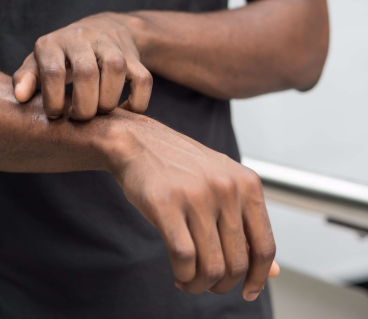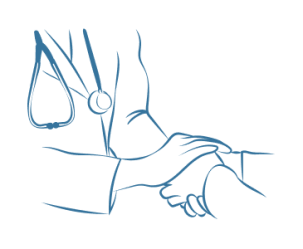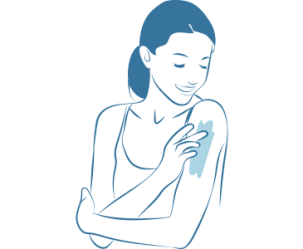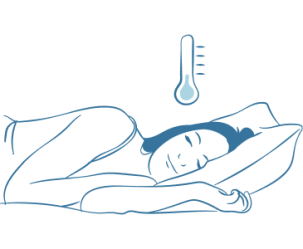How to relieve itching on a daily basis?

Itching, also called pruritus, is defined as unpleasant skin sensations that cause an irresistible urge to scratch. When they are chronic, they are often associated with skin diseases such as eczema, psoriasis or seborrheic dermatitis. They can also occur without any apparent skin lesions and can significantly affect the quality of life of sufferers, in particular in terms of sleep. Dry skin is one of the most significant causes of itching. But there are simple solutions for no longer being affected by itching on a daily basis.
5 simple daily rituals
Reduce
scratching to the minimum
Why?
- To avoid making the itching worse, because scratching triggers an inflammatory reaction which amplifies itching: it’s a vicious cycle
- To limit the appearance of scratching lesions and reduce the risk of secondary infection of these lesions
How?
- Keep your hands and mind busy when the urge to scratch arises
- Cut your nails short
Act
as soon as your skin starts to itch
Why?
To avoid scratching
How?
Place something cold on itchy areas (refrigerated thermal spring water, cold pack, refrigerated stone, cold compress, etc.)
Moisturize
your skin daily
Why?
To reduce skin dryness
Hydrated skin is healthy skin.How?
- Apply a daily moisturizer for itchy skin
- Apply preferably after showering to wet skin for better absorption
Cleanse
your skin gently
Why?
To keep the itching from worsening
Hard water, water that’s too hot and soap dry out the skin and increase the sensation of itching.How?
- Opt for short showers (5-10 minutes), with warm water
- Use a soap-free shower gel with a physiological pH, suitable for itchy skin
- Dry your skin by dabbing with a towel, without rubbing too much
Avoid
self-medication
Why?
To avoid drug interactions and worsening of symptoms
How?
Seek advice from a pharmacist or doctor before taking any medication

What are the main environmental triggers for itching?
Your environment can influence your skin’s health. There are factors that can cause dry skin, and trigger itching that’s both intense and chronic.
Cold and dry weather
Hard water
Hot water (>37°C)
Pollution
Stress
Unsuitable, aggressive cosmetic products
Certain medications (opiates, antihypertensives, cholesterol-lowering statins, antibiotics derived from penicillin, etc.)
Related products
Doctor's stamp
Want to read on?
This access is reserved for professionals, registered on Pierre Fabre For Med.
To access the full content, please register or log in if you already have an account.




